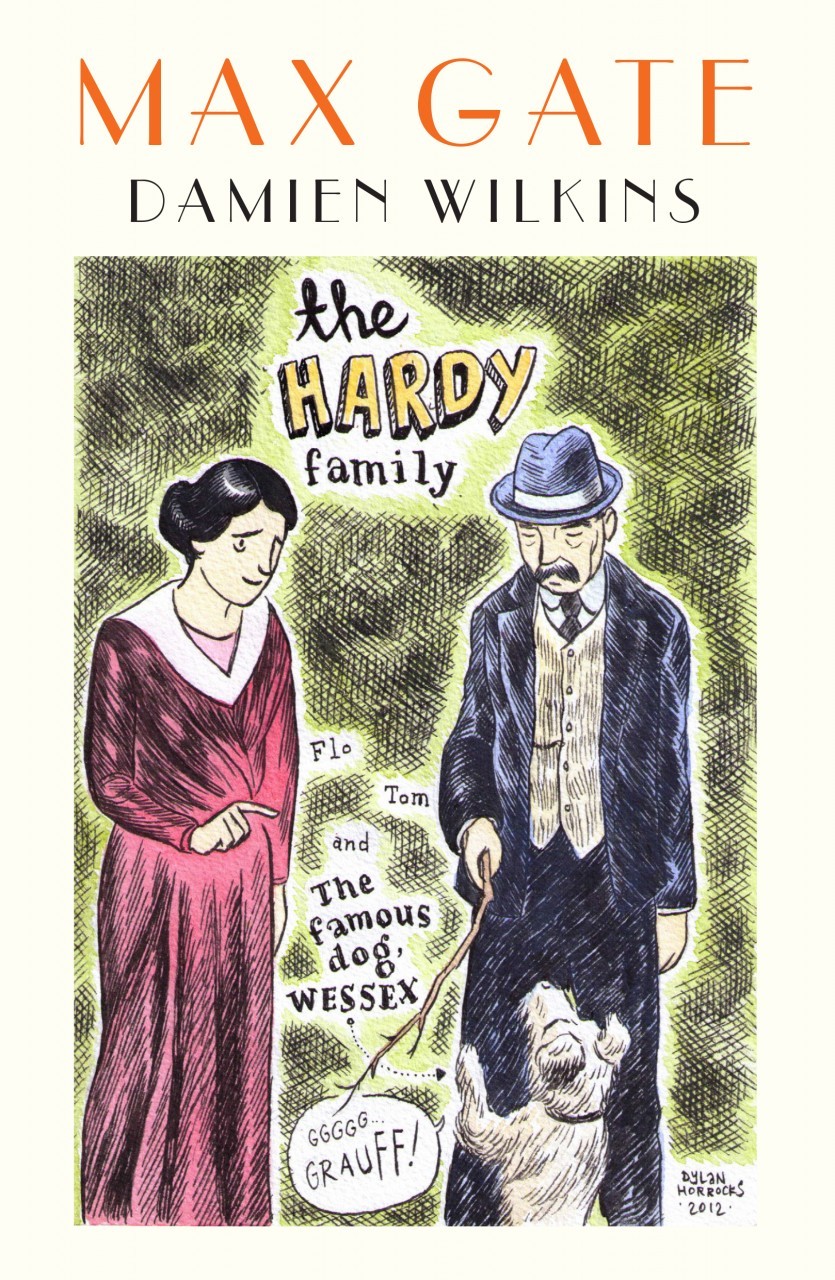Damien Wilkins is the author of thirteen books, including a book of poems and two books of short stories. He is best known for his award-winning novels, including The Fainter (2006), Chemistry (2002) and The Miserables, which won the 1994 New Zealand Book Award for Fiction. His most recent novel is Max Gate (2013). He has twice been awarded a New Zealand Scholarship in Letters and in 2000 he was Writing Fellow at Victoria University. In 2013 he was named an Arts Laureate by the New Zealand Arts Foundation. Damien Wilkins has taught creative writing in both New Zealand and America. He has also written drama for the theatre, television and radio. His writing for television includes episodes of Duggan and The Insider’s Guide to Happiness, and a play, Drinking Games, was performed at Circa Theatre, Wellington in October 2008. He was one of the founding editors of the leading literary magazine Sport, and in 2013 became the Director of the International Institute of Modern Letters at Victoria University of Wellington. Under the band name, The Close Readers, Damien Wilkins performs and releases original songs. He lives in Wellington, NZ with his wife and two daughters.

-
The MiserablesA Novel
When the ferry berthed at Picton, the American was to purchase two one-way tickets back to Wellington; one under Healey’s name and one under his own real name; he was at present travelling under a false name. He would pass over both these tickets to Healey and then disappear for good. Healey would deposit the American’s ticket in a rubbish bin on board. Then at a certain point in the voyage, when it was dark and they were towards the middle of the Strait—this was important, the American had told him, because of the currents which might easily drag a body far out to sea—Healey was to raise the alarm that he had just seen a man jump overboard.
The ferry would most likely be stopped and Healey would have to take a role in looking for the missing man. He would have to be ready to indicate how the figure fell and from where exactly, what he was wearing, what he looked like, and in none of these details should he be too precise. It was dark. No one else was on this part of the deck when it happened and Healey himself was on an upper deck and saw it more or less out of the corner of his eye. No, the man did not shout or make any noise as he jumped.
 The Miserables: A Novel
The Miserables: A Novel -
The MiserablesA Novel
The day the Wahine went down, a day unfailingly recalled to his mind whenever he set foot on the ferry, the only tree in their backyard had fallen through the windows of the sun-room. Healey and his brother had gone out the morning after the storm and stood on the trunk, much as they had seen the passengers in the newspaper photos crawling onto the only side of the ferry still above water. In Eastbourne and around the bays of the harbour, for several weeks following the sinking, people had gone souvenir-hunting. A boy at school had found the captain’s wristwatch, stopped exactly at the time his ship had gone down. Later, this was uncovered as a fraud, though not before the watch had changed hands for a sum of money which the headmaster, in full assembly, labelled ‘scandalous’—especially since it turned out, though there was no allusion to this in the speech, that the sum had been extracted from a senior member of staff. The only souvenir Healey had was the sound of gunfire in his sleep on the night of the storm. This was the noise from the branches of all the trees on their street snapping.
 The Miserables: A Novel
The Miserables: A Novel -
The MiserablesA Novel
…as the weeks went by, the brother’s postcards home began to suggest an interest not only in the money he was now earning but in the details of the life on the farm and especially in the life of the bees. Amid the usual details of weather and meals, a sentence would fall into the text, almost by accident; ‘I saw a queen today so fat she kept falling over.’ Nor would anything be made of it by the writer; they were presented as casual observations: ‘I think they know me now, I’m learning their different dances.’ At this time, also, jars of honey would arrive in the mail, though it was only when Healey heard from Claire that she, too, had received these gifts, which came as a surprise to him, since they had always believed themselves to be the only ones so favoured, that he began to understand that the jars of honey had been the brother’s signal of intent, a kind of warning or preparing of his family and friends so that they would not be too surprised or think the change too sudden or ill-advised—as had the parents of a certain cousin when she announced she had been ‘born again’—when he returned from the south with his mind made up.
 The Miserables: A Novel
The Miserables: A Novel
Selected Works





- Print Books
- Playmarket